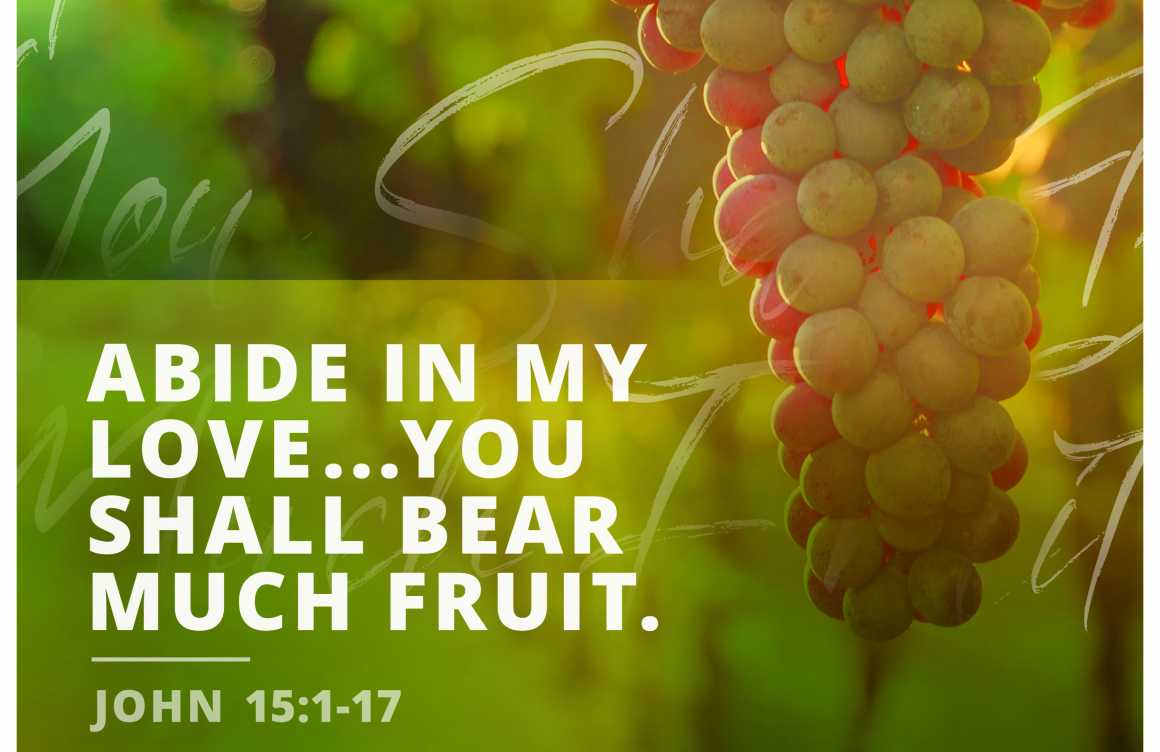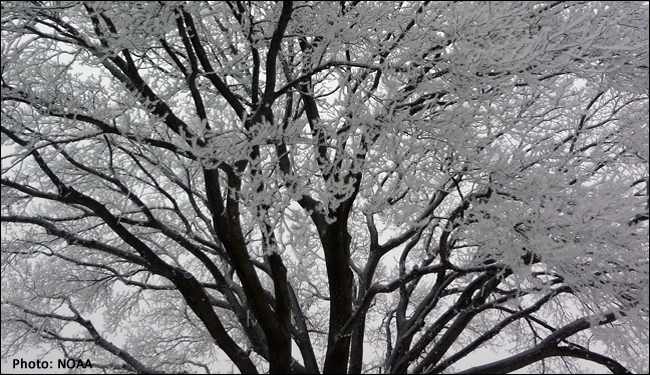
I was reminded this morning at Mass that this is the Week of Prayer for Christian Unity. The prayer corresponds to the intention of Jesus in his high priestly in John 17, prayed the evening of his arrest and the night before his crucifixion. Jesus prayed, “That they all may be one, as thou, Father, in me, and I in thee; that they also may be one in us; that the world may believe that thou hast sent me” (John 17:21 Douay-Rheims).
The desire to see the answer to Jesus’ prayer has played a major role in my spiritual journey. My very first blog on this site begins to share that story with you.
Over the weekend Charlotte and I read a new book by Bishop Joseph E. Strickland of the Diocese of Tyler, Texas. In the book, Light and Leaven: The Challenge of the Laity in the Twenty-first Century, Bishop Strickland “offers a forthright perspective on the state of the Church and the world today and calls on the lay faithful to meet its challenges unflinchingly. We must not shrink from the culture, but be a light to it; we must not retreat from the world but leaven it with grace and truth.” (from the back cover).
One of the sections in the book is entitled, “The True Spirit of Ecumenism.” I found it an excellent treatment of the desire for Christian unity in 2021.
The True Spirit of Ecumenism
I’ve often said weddings and funerals and presided in other settings where I knew there were numerous non-Catholics. We really have to honor the zealous faith of Evangelical Protestants. They are true disciples of Jesus Christ, often better Christians than we are—they’re doing it with minimal rations! We have a banquet of sacraments and saints and history and liturgy and the Magisterium, and they just have (their own private interpretation of) the scriptures. And not even all the scriptures—the complete canon of the Bible came about through the authoritative discernment of the Catholic Church, and they reject parts of that canon.
One of the great fruits of Vatican II, one that didn’t get tainted as much by the worldly “spirit,” has been Scripture studies—a greater appreciation of how the Bible is our book. And even the liturgy has been enriched through greater exposure to Scripture than before the council.
So we’ve got everything in the banquet of supernatural truth in the Catholic Church, but although Evangelicals lack our provisions, many practice admirable faith and make great sacrifices to live it. Many of them have been staunch allies in defense of unborn life and in other battles between Christianity and the secular culture. I have visited with them in such efforts, and they’re right there with us. Here in East Texas, one some of these issues Catholics are closer with their Evangelical Protestant brothers and sisters than they are with Catholics in some other parts of the country. On the life issues, on sexual morality, on the importance of traditional marriage, and on respect for this nation and its values, we are comfortable together as Catholics and Protestants. They are the salt of the earth.
Of course, what we believe about contraception is not even in their universe (with rare exceptions). “It’s just one of those Catholic things” (even though it isn’t). I pray, though, that as more of our Evangelical friends take note of the evil fruits of contraception, of the breakdown of families and society, they may start to appreciate the coherence of Catholic sexual morality—how our beliefs about marriage, sex, and unborn life are all of a piece—and become closer allies still.
In fact, over the years I’ve had a number of people and ministers from Protestant churches talk to me about that. I try to convey to them that the truth is the truth. It’s not Catholic truth versus Protestant truth. It’s simply the truth. It is reality.
Ecumenism is great, and we want to be loving and friendly with everyone. But ultimately it has to be about more than static dialogue or mutual understanding—it has to be about returning all Christians, even all people outside of Christian communities, to full communion with the Church. It can’t get stuck on “Well, you’ve got your truth and I’ve got my truth and we’ll agree to tolerate our differences.”
The Catholic Church is the Church Jesus established. The goal is for everyone to be part of his Church. I think when you’re honest with yourself and others on this point, ecumenism as we have become used to practicing it kind of falls apart. I’m not going to become part of some other Christian group, and I’m not going to compromise what the Catholic Church teaches in order to get cozier with some other Christian group. The Catholic Church is an imperfect institution, but it is holy and it is true because the Holy Spirit animates and guides her. So the endgame of ecumenism, if it is authentic, Spirit-led ecumenism, has to be complete unity in the fullness of the faith we confess together.
Are there Anglicans or Methodists out there who believe that ultimately everyone in the world needs to be Anglican or Methodist? I doubt that’s the approach they would take. So the kind of relativistic ecumenism that predominates, the kind that papers over differences and sets a low bar for similarities, seems more of a natural fit on the mainstream Protestant side. (Though of course there are Fundamentalists who think Catholics aren’t even real Christians, so they probably aren’t interested in that sort of ecumenism!)
But if you really believe what we believe—that the Eucharist really is Christ’s body and blood, soul and divinity, and that Christ wants the whole world to be fed with it, not just the Catholic Club—then any goal short of that isn’t good enough.
I’ve often said we tend to be too literally “cradle Catholics”: we’re asleep, dozed off in the beauty of what we just kind of inherited or stumbled into because we happened to be born into a family that had us baptized as infants and gave us the basics of the Faith. A lot of the strength of the Church today is in converts who have embraced the Catholic faith after a long journey; they value Catholicism more because they had to learn for themselves how it’s of divine origin. They had to work through objections and the inertia of their former life and seize Catholic truth for their own, identify with it fully.
Many cradle Catholics, in contrast (and also some converts) have not had to “do the work” of studying and owning the Faith. Certainly, Catholicism is much more than just an intellectual enterprise, but the intellectual aspect is quite significant. Through study, we can come to really know who Jesus Christ is and what he has revealed to humanity. And of course, the Church began with adult converts! Many of her members who were contemporaries with Jesus never actually met him, but they came to know him by coming to know his teachings. So I think converts teach us a lot about how we should approach sharing the message of Jesus, the message of the Catholic Church, in today’s world.
Yet it seems as if today in the Church there’s too much of an anti-conversion attitude. “Let Protestants be saved by Protestantism and we’ll be saved in our slightly different brand of Christianity.” There’s a loss of evangelical fervor, too, as was hinted at during the Amazon synod. “Let’s not baptize anyone; instead, let’s see what the Church can learn from paganism.” Let’s admire their idols and see what we have in common. We’re not supposed to “proselytize,” which is supposed to mean that we don’t force the Faith on people, but it has functionally come to mean that we never try to convert anyone.
I think that’s anti-Christian. It’s not what Christ said, and it’s not what I believe Christ calls us to do.
If we don’t really believe the Faith enough to share it, to shout it from the rooftops, to tell other people that Catholicism is true and what they believe is at least partly false, then honestly, I quit. I don’t want any part of an amorphous, homogenous, compromised glob that doesn’t believe in much of anything. There’s plenty of that in the world already. If the Church was just one among many such groups, I would have to go work at Walmart or something.
But from the depths of my soul I’m constrained from following any other path because I do believe that Christ is the answer and that the Church presents Christ in his fullness. And as long as I’m breathing, I will continue to hold up that full Christ, who, through the Church he founded, offers rest to the restless heart of every person in the world. — Bishop Joseph E. Strickland
